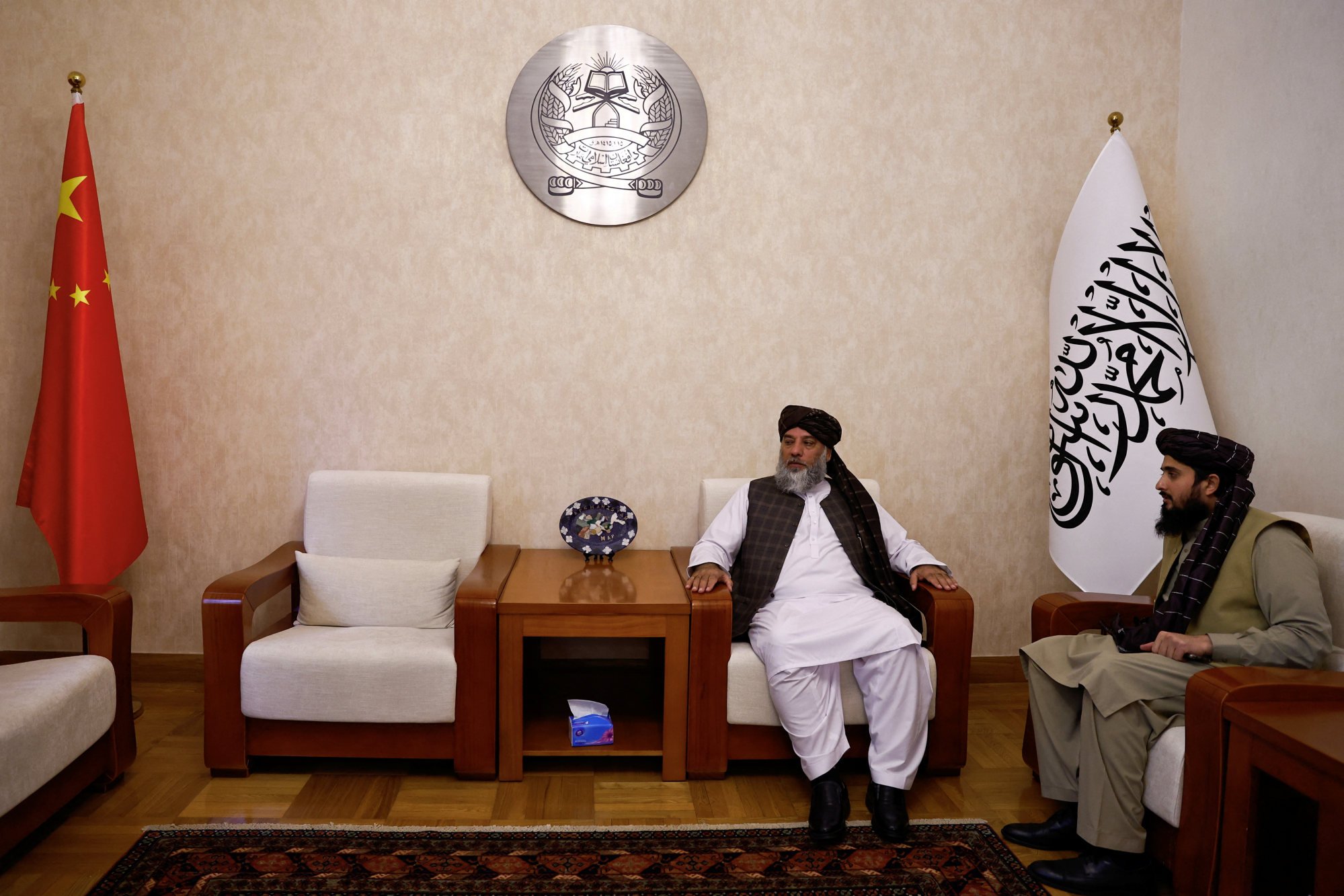All eyes were on high-profile guest Russian President Vladimir Putin when China recently hosted the belt and road forum. However, away from the spotlight, there were others present – rarely seen on the diplomatic stage but vital to Chinese geopolitical and regional interests.
One such was Haji Nooruddin Azizi, acting commerce minister of the Taliban, the militant group running Afghanistan and yet to be recognised as a legitimate government by the international community.
Azizi led a delegation to last week’s forum, the highest-profile summit the Taliban administration had been invited to since taking power in Kabul more than two years ago.

Analysts read the invite as a signal of support for the regime, as Beijing seeks to strengthen ties with Afghanistan after the US military exit from Kabul in 2021.
China, they suggest, has “vested interests” in engaging with the Taliban and raising its profile on the world stage, including a desire to portray itself as a responsible and inclusive world power.
According to the observers, Beijing could potentially play a big role in boosting the Afghan economy, with some major Chinese firms likely to soon buy into the war-stricken Central Asian country.
Raffaello Pantucci, senior fellow at the S. Rajaratnam School of International Studies in Singapore, said China has been consistent in its support for the Taliban on the world stage and “boosting them and their authority at every turn”.
“This is part of a strategy to embrace them tightly,” he said. “China has become the Taliban-ruled Afghanistan’s most important partner on the world stage.”
While China does not formally recognise the Taliban, last month it appointed a new ambassador to Afghanistan – becoming the first country to do so since the Islamic militants took power.
Apart from the invitation to the third belt and road forum – marking the 10th anniversary of China’s ambitious multinational infrastructure plan – Beijing has ramped up engagement with the Taliban regime in regional formats as well.
Earlier this month, China’s special envoy on Afghan affairs, Yue Xiaoyong, held a three-way meeting with Taliban acting foreign minister Amir Khan Muttaqi and Pakistan’s special representative on Afghanistan, Asif Durrani.
Muttaqi also met China’s top diplomat and Foreign Minister Wang Yi on the sidelines of a separate regional forum in Tibet this month, where they agreed to improve trade ties and strengthen cooperation.
“China stands ready to continue to help Afghanistan develop its relations with neighbouring countries and be better integrated into regional economic cooperation,” Wang was quoted as saying in a Chinese readout of their meeting.
Pantucci said China needs Afghanistan – lying across a short border to its west – to remain relatively stable, and sees the Taliban as providing that option. On the other hand, as the diplomatically isolated Taliban craves international support, Beijing is “willing to provide this”.
“[China] has done everything except formally recognising the Taliban as the legitimate government of the country, and inviting them to the belt and road summit is merely another expression of this.”
Dirk van der Kley, a research fellow at the Australian National University, said China wishes to see an Afghanistan that is prosperous and supports it on the global stage.
Given its limited ability to influence Afghanistan’s stability, Beijing’s invitation for the Taliban to attend China-led forums – such as the belt and road summit – is a “low-cost way to signal support”, van der Kley said.
Pantucci also highlighted Beijing’s concerns about Uygur militants gathering in Afghanistan and using it as a base from which to strike China.
Beijing has voiced concerns over separatist groups including the Afghanistan-based East Turkestan Islamic Movement, which aims to set up an independent Islamic state in Xinjiang and Central Asia, of carrying out attacks in China. It is also worried about cross-border terrorism “spillover”.
Source : SCMP









